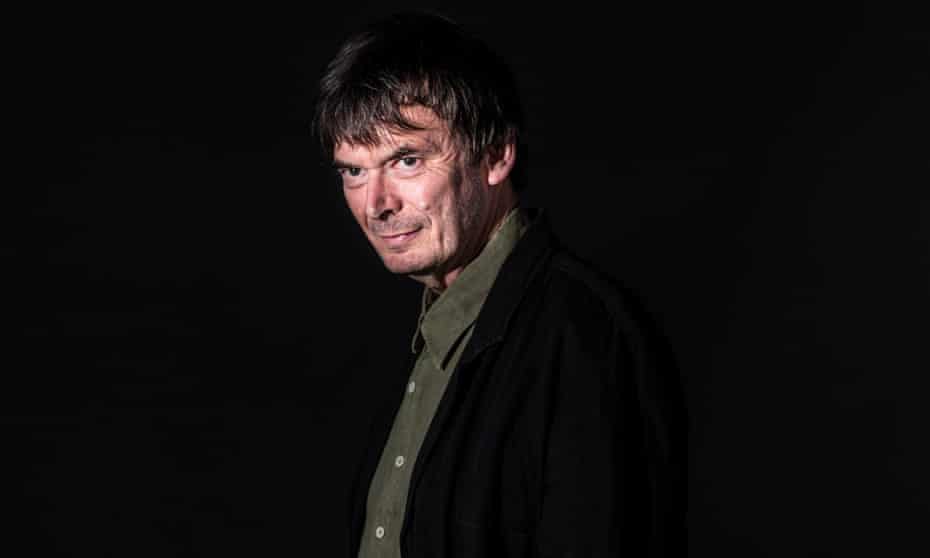Το αναδημοσιεύω καθώς αναφέρεται σε κάποιους συγγραφείς και βιβλία που εκτιμώ ιδιαίτερα, ειδικά στην Μuriel Spark και στον Georges Simenon.
Ian Rankin: ‘The Prime of Miss Jean Brodie is a perfect gem of a story’
The crime writer on being fascinated by A Clockwork Orange, inspired by Dr Jekyll and Mr Hyde and taking comfort in Muriel Spark’s novel

My earliest reading memory
I read children’s comics voraciously from a very young age, starting with Bimbo (aged four or five) and progressing via the Dandy and Beano to the Victor and the Hotspur. Then there were the comic strips in the Sunday Post newspaper – Oor Wullie and the Broons. I did try drawing my own comics, but wasn’t much of an artist. I do still read comics, by the way – and I credit them with being my gateway drug to literature.
My favourite book growing up
In my pre-teen years it was mostly Ladybird books and Enid Blyton. I don’t remember ever reading Winnie the Pooh or Thomas the Tank Engine, and didn’t encounter Dr Seuss until I was a parent myself. The only real books I kept and returned to were the comics’ Christmas annuals. I was also a sucker for TV tie-ins, so would have annuals based on the Gerry Anderson shows (Joe 90; Captain Scarlet) or Dr Who or The Persuaders!.
The book that changed me as a teenager
A Clockwork Orange by Anthony Burgess. I was 14 or 15 when I read it. A whole bunch of pulp paperbacks with titles such as Skinhead or Suedehead used to be passed around the school playground, but I felt that A Clockwork Orange was of a different order of merit. It felt very literary to me. There was a moral purpose to it; the language was fascinating. While my friends were hanging around street corners waiting for trouble, I would be sequestered in my bedroom, writing stories influenced by Burgess’s short sharp novel.
The writer who changed my mind
Joseph Heller, especially for Catch-22, which I studied at secondary school. I was the “clever one” in my family and destined to be the first to attend university. My parents thought that accountancy would be a good subject to study, as there would be a decent career at the end of it. But I was falling in love with the world of books, and Catch-22 made me want to study American literature. I persuaded them that I should study literature at Edinburgh University.
The author who made me want to be a writer
William McIlvanney was a huge influence on me in my early 20s. He came from a similar background and wrote exquisitely about the world around him. He had won the Whitbread prize in 1975 for his novel Docherty, but he also wrote crime fiction. I saw that crime was a way of dissecting society and its varied problems, discussing big themes while being entertaining and thrilling. In 1985 at the Edinburgh book festival I pressed my copy of Docherty into McIlvanney’s hand, explaining that I was in the process of writing about Edinburgh the way he wrote about Glasgow in his Inspector Laidlaw novels. He inscribed my book “Good luck with the Edinburgh Laidlaw”.
The author I came back to
Robert Louis Stevenson. I tried reading Kidnapped and Treasure Island in my teens, but only really warmed to their creator later, coming to realise what an extraordinary talent he was. Dr Jekyll and Mr Hyde has been a big influence on my crime fiction, tackling as it does the question of why we humans can so often become inhuman.
The book I reread
A Dance to the Music of Time by Anthony Powell. I was given the first three volumes one birthday while still a student. I found it hard going at first, because its world of privilege didn’t resonate with me, but I persevered, mostly because of the poised elegance of the prose, and fell under its spell. I read it again during the first Covid lockdown and enjoyed it all over again. Widmerpool is one of the great creations of the 20th century, and shows how a buffoon can rise to prominence and become a monster of sorts.
The book I could never read again
I was a fan of adventure stories when I was in my teens and Alistair MacLean was a favourite. A few of his best books still hold up but many now seem clunky and dated, though if the film of Where Eagles Dare ever pops up on TV, I find myself glued to it.
The book I discovered later in life
The Snow Was Dirty by Georges Simenon. I read this only a year or so ago and was blown away by it. If you only know Simenon for his Maigret novels, this may come as a revelation. It is the chilling account of a venal young man in second world war France who is eventually imprisoned by the Nazis. We start off despising him and end up rooting for him. It led me to other “romans durs” by Simenon. He was a great writer.
The book I am currently reading
The Voids by Ryan O’Connor. It’s a novel about a young man in Glasgow whose life is spiralling downwards, told in almost hallucinogenic prose. I catch glimpses of Alexander Trocchi and William Burroughs in it, but it retains its own unique quality.
My comfort read
Muriel Spark’s The Prime of Miss Jean Brodie. It’s such a perfect gem of a story, morally complex, harrowing, funny, and featuring the most charismatic anti-hero in Scottish literature. Plus you can read it in a day.



Δεν υπάρχουν σχόλια:
Δημοσίευση σχολίου